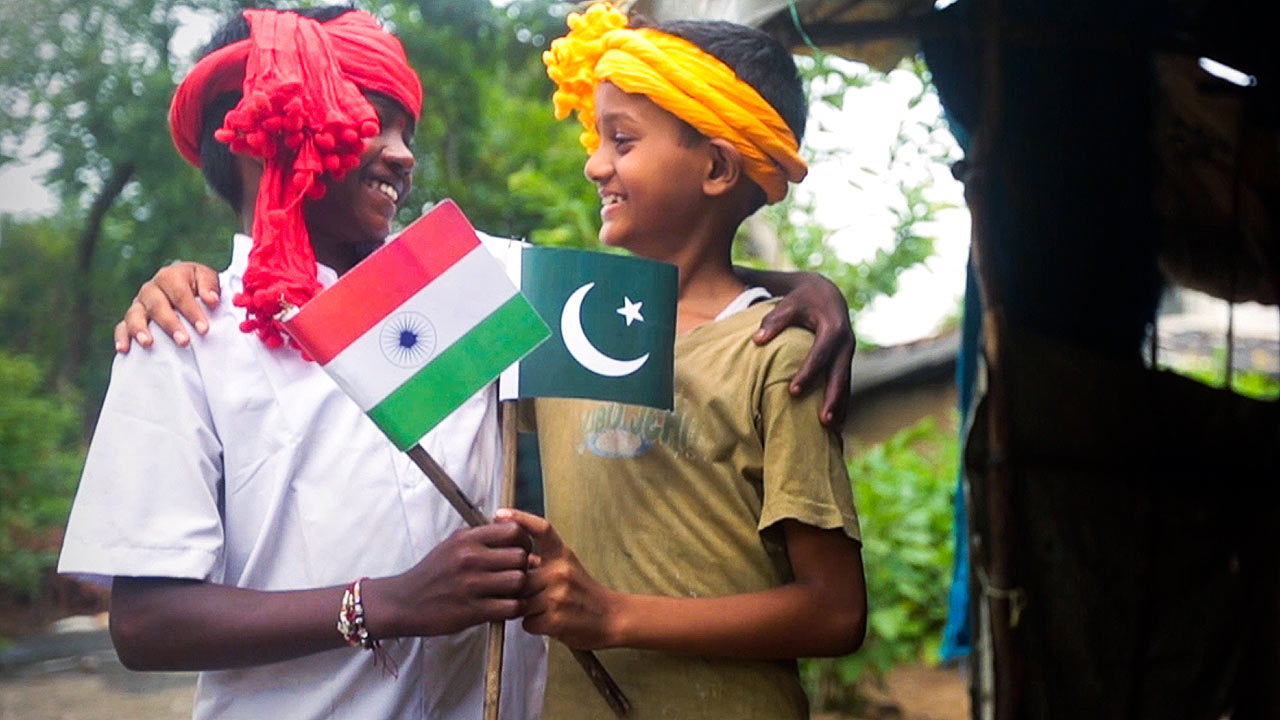
Neighbors are very important. They can be very good and valuable friends who can prove to be extremely helpful in difficult times. In many difficult situations a distant friend, despite best intentions, may not be able to help as much as a neighbor friend. This is well to remember in times of climate change when the threat of natural disasters is likely to increase much more.
Even in normal times, having friendly neighbors is a useful and happy experience. Mutually beneficial trade with neighbors is both economically and ecologically more useful, as we should try to procure what we do not have ( or have less than our requirement ) from nearer sources than more distant ones.
Apart from economic factors, cultural cooperation can be even more rich and heartwarming, as our experience of cultural diversity is enhanced and enriched with friendships from across the border.
What is more, friendships at the level of governments become stronger, more vibrant and more stable, and have many more dimensions, only when these friendships extend even more to the people of any two or more countries, and people have more chances of inter-actions and of deeper friendships. More than economic relationships, it is social-cultural relations which acquire their real strength and vibrancy at the level of people, particularly at the level of inter-actions among women. They somehow are more capable of forging deeper and more emotional relationships even in inter-actions of relatively lesser duration.
Despite these obvious truths, it has been a very common experience in history, continuing right up to this day, for neighboring countries or regions or territories to be in relationships of hostility. This has often taken the form of border disputes, again often leading to fierce battles and wars. These disputes do not reflect any wisdom, particularly if one remembers that many of the present day national borders were drawn up by colonial powers in ways which were very selfish or stupid, or both. These disputes almost always could be and can be settled peacefully and amicably. Sometimes the disputes involved barren land, but even if they involved rich mineral land, in almost all cases it would have been more beneficial, taking a wider view, to have settled the matter in a spirit of give and take, both sides willing to settle for less than maximum in the wider interests of peace and stability which bring lasting and much wider benefits. But the record shows that such common sense and wisdom have been more absent than present.
What is worse, when governments have shown signs of such wisdom and responsibility, they have been prevented from exercising it by jingoistic and provocative opponents. What is most regrettable is that often sizeable sections of people get swayed by such narrow considerations instead of showing restraint and a more firm faith in peace.
Sometimes the real spoilers have been bigger powers other than the two neighbors ( or the arms companies or other narrow selfish interests within or allied to these big powers) who contribute to or instigate conflict conditions. The combined result of these unfortunate tendencies has been that our world sees hostile neighbors more often than very friendly neighbors, resulting in a lot of entirely avoidable distress, tensions and suspicions, in turn resulting in excessive military expenditure, arms race and border build-ups, even if war can be avoided.
India is blessed with as many as nine neighbors ( we include here the seven other countries of South Asia including Afghanistan, apart from China and Myanmar) , with enormous promise of benefits from trade and development co-operation and even richer socio-cultural inter-actions and exchange at the level of people, particularly women and youth. But when there is a phase of hostile relationships, having a bounty of nine neighbors starts appearing less of a blessing and more of a misfortune. We recently had such a difficult phase when our relationships with China and Pakistan were becoming very tense and surprisingly even deteriorating with other friendly countries like Bangladesh and Nepal. We realized that China is the Big Brother of the region and more tensions with China play out somehow in the form of more difficulties with other countries as well, such as was seen in Nepal and to some extent in Sri Lanka, and made it more difficult to improve relationship with Pakistan.
Now recently rather suddenly things have improved and we seem to be coming out of a very worrying phase of relationship with neighbors. There is certainly a reduction in border tensions with China and Pakistan. This was followed by welcome efforts of the government to improve relationship with Bangladesh. Hopefully other relationships will also improve as the more troubling ones have improved.
This opportunity should be seized to provide a more firm base for more stable improvement by improving ties at the level of people as well.
As democracy has been in decline in almost all countries of the region, the significance of people-level increase of friendship is even more important. It is important that the voices of people on critical issues like environment protection, disarmament and avoiding destructive projects is heard. To give just one example, there are serious risks in indiscriminately speeding up dam construction in Himalayan region but nevertheless countries seem to be competing with each other to get ahead in this. This will be very destructive and so it is important that the voices of people and of independent experts from all these countries should be heard and heeded to embark on a saner course regarding water and rivers, prevention of disasters and very caring governance of sensitive regions like the Himalayan region as zones of peace and environment protection.
Bharat Dogra is a journalist and author. His recent books include Planet in Peril and Protecting Earth For Children.
GET COUNTERCURRENTS DAILY NEWSLETTER STRAIGHT TO YOUR INBOX











































